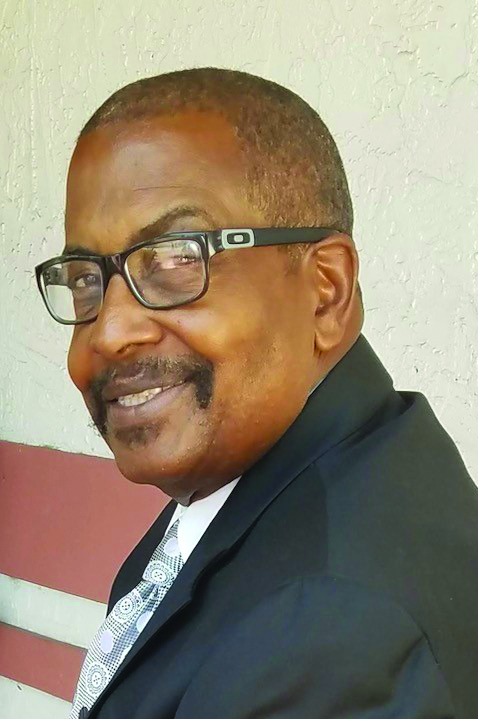By Sylvester “Nunnie” Robinson
Almost ten weeks ago, Joe Redmond broached the possibility of revisiting the stories of some of the remarkable, iconic HBCU coaches with WG publisher Bobby R. Henry. After speaking with Bobby about Coach Redmond’s idea, which I found intriguing and fascinating, I connected with Coach Redmond to develop a plan of action which led to past treasures like Jake Gaither, John Merritt, and Marino Casem among others. Speaking every week, I dubbed Coach Redmond “ The Collaborator “ because he possessed intrinsic, first hand knowledge about several of the icons featured.
Joe Redmond was born and raised in Nashville, Tennessee in the era of segregation. He graduated from Cameron High School where he was a star athlete as a quarterback in football and a flame-throwing pitcher in baseball. Diminutive in size at only 5’8” , 160 pounds, he earned a scholarship to renown Fisk University in Nashville though he yearned to play for Grambling’s iconic Eddie Robinson (more about that later). Joe’s father, a great provider, disciplinarian and role model, died in his arms when Joe was only 10 years old, leaving his mother Mrs. Cora Bea Redmond, whom he referred to as the “Rock” and his grandmother to raise him. His mother initially said that she couldn’t attend his games, fearing injury. Fortunately, she never missed a game – high school or college – and became his harshest critic and greatest supporter, a testament of her love for him. Additionally, his high school coach, Clayton B. Starnes, a TSU graduate, filled the void left by his father’s passing. Joe saw him as great innovator who employed the passing game with tremendous success while utilizing his innate ability as a runner/passer or in today’s nomenclature: a dual threat athlete. Undaunted by his size, Joe convinced his his mother to permit him to walk on at Grambling because he thought he was good enough. On the bus ride to Grambling, he noticed several behemoths boarding the bus, soon discovering that they were also headed to Grambling. Joe said he felt like a mosquito in a nudist colony. After meeting and explaining to Coach Robinson his plans, “Black Jesus” explained in no uncertain terms that he had water Boys bigger than he was. Disappointed but undeterred, he returned to Nashville, enrolled at Fisk where he started as freshman and became a two-sport phenom in football and baseball, graduating with a bachelor’s in health & physical education.
After teaching and coaching at several Indiana and Michigan high schools, even coaching Bo Schembechler’s son in Ann Arbor,, he landed his first college coaching job at Northern Illinois, becoming the first minority assistant and offensive coordinator at the school. He attributes relationships with Coach Schembechler and Coach Lou Holtz, who would become his daughter’s godfather, instrumental in his early success. Actuality when queried about several brief tenures at different schools, Joe stated that advice from Coach Holtz drove his decisions: a place where winning is important, tradition valued, and pay inconsequential.
His first college job as head coach was Maryland Eastern Shore, then Central State in Ohio before landing his dream job at Texas Southern University in Houston. At Texas Southern he competed successfully against Eddie Robinson and held his own when in competition with Earl”Papa Bear” Banks. One lasting, indelible impression about coaching, according to Coach Redmond: When I’m on that field leading young men in battle, I feel like I am somebody, important. That’s my element, what drives and motivates me. “As a former coach, his words resonate with me, and I’m certain many others because no matter the level – high school, college or pros – it is indescribably special.
What I’ve come to realize is that success isn’t always measured by wins and losses, though the great ones win many more than they lose. The relationships with student/athletes that you coach and form life long bonds with, their successes in life after football and lessons learned are equally as important .
Joe went on to coach at Marshall as quarterback coach and passing game coordinator, then enjoyed a successful two-year stint as offensive coordinator under Ken Riley at FAMU. He then accepted the head coaching position at San Bernadine Valley Junior College, but only stayed one year because he was offered the head coaching position at Joliet (Illinois) Junior College, the first African American head coach at the largest PWI Junior college in the country.
From there he spent five years as athletic director and head football coach at Knoxville College, Jake Gaither’s alma mater. His final college job was at Morris Brown in Atlanta.
With coaching in his blood and his collegiate career coming to an end, his stature as a football coach and leader of young men led to final head coaching successful stints at Fort Lauderdale Dillard, Stranahan, Deerfield and Miami Jackson, leading all four schools to state playoff births.
At some point his health became an issue, even needing and receiving a kidney transplant from his son and chronic hip issues. None of those obstacles prevented him from following his passion for teaching, coaching, mentoring and leading young people just as had been the situation with him as young athlete.
Although Coach Redmond may not have had the long, tenured winning record as some of the icons we covered, his impact on the athletes he coached and relationships formed will forever be etched in the game and lives he touched, because no matter where he went or how long he stayed, the institutions were better after he left.

